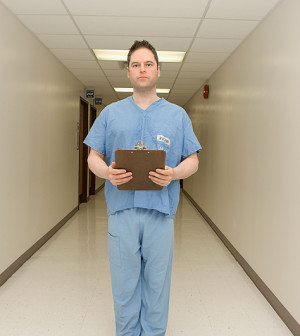- 10 Strategies to Overcome Insomnia
- Could Artificial Sweeteners Be Aging the Brain Faster?
- Techniques for Soothing Your Nervous System
- Does the Water in Your House Smell Funny? Here’s Why
- Can a Daily Dose of Apple Cider Vinegar Actually Aid Weight Loss?
- 6 Health Beverages That Can Actually Spike Your Blood Sugar
- Treatment Options for Social Anxiety Disorder
- Understanding the Connection Between Anxiety and Depression
- How Daily Prunes Can Influence Cholesterol and Inflammation
- When to Take B12 for Better Absorption and Energy
Jimmy Carter Says Brain Scans Show No Signs of Cancer

Former President Jimmy Carter said on Sunday that brain scans have shown there are no longer any signs of the melanoma cancer that had spread to his brain.
The news comes roughly three months after he began treatment for four small lesions in his brain and had surgery to remove part of his liver. However, Carter said in a statement that he will continue to take Keytruda, an immunotherapy drug that helps his body recognize and fight any stray cancer cells.
“My most recent MRI brain scan did not reveal any signs of the original cancer spots nor any new ones,” Carter said in the statement.
Carter broke the news to a Sunday school class at Marantha Baptist Church in Plains. Ga., according to the Associated Press.
Carter, 91, first announced in August that he had been diagnosed with melanoma that had spread to his brain. Along with the liver surgery, he received a round of radiation and the drug Keytruda every three weeks, the AP reported.
Whether Carter’s medical team at Emory University’s Winship Cancer Institute in Atlanta has performed additional scans was unclear Sunday, the AP reported.
Dr. Len Lichtenfeld, deputy chief medical officer for the American Cancer Society, told the wire service that doctors will often scan other parts of the body in melanoma cases, to make sure the disease has not spread.
“Circumstances may change over time or he may be in a situation where it does not recur for many years or at all,” Lichtenfeld said.
During his treatment, Carter continued to do volunteer work, according to the AP.
“I’ve reacted well to the treatments,” Carter told the wire service in November. “I haven’t been uncomfortable or ill after the treatments were over. So that part of it has been a relief to me and I think to the doctors.”
More information
Find out more about brain tumors at U.S. National Cancer Institute.
Source: HealthDay
Copyright © 2026 HealthDay. All rights reserved.










